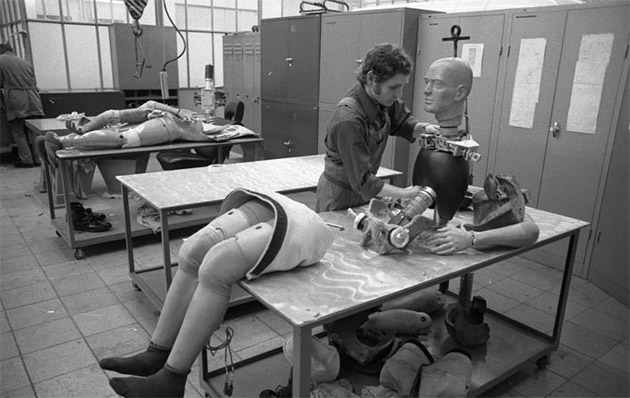People will eventually be able to engineer people, and then what?
It may be necessary for the survival of the species, but the games will be messy and so much could go wrong. But if, say, China started doing it, how would other nations not?
I’m pretty sure it was David Epstein who discussed how this type of human alteration is not realistic in the short term because genes have such complicated, multifaceted functions. But there’s nothing theoretically impossible about it given more time. If we don’t do ourselves in, eventually we’ll be making ourselves over.
From Michael Tennesen at Salon:
We’ve proven we can change the genetic makeup of plants and animals, so how about us? We don’t need to wait for natural selection: we can start selecting right now. The cost of genomic sequencing, the key to moving modern medicine from reactive standards to personalized prevention, has fallen astronomically. When the Human Genome Project was announced in 1990, deciphering the genome of one man was budgeted at $3 billion. By 2001 the cost was down to $3 million. In 2010 it was below $5,000. By 2012 it was below $1,000. At this rate, in ten years a fully sequenced human genome should cost about $10.
As genetic screenings become more common, designing the body to alter genetic weaknesses will be more common as well. Angelina Jolie getting a double mastectomy because of a gene in her body that makes her more susceptible to breast cancer is just the start. It may one day be possible to change the gene rather than the result. The negative aspect is that many genes perform more than one function. Changing a gene to match a given result may have unintended consequences. Trial and error will be necessary here.
What will be the big forces behind genetic manipulation? The University of Washington’s Peter Ward sees parents as strong selective forces, since many will want their offspring to live long, look good, and be brainy. “If the kids are as smart as they are long-lived— an IQ of 150 and a life span of 150 years—they could have more children and accumulate more wealth than the rest of us,” wrote Ward in a January 2009 article for Scientific American. Socially they would be drawn to others of their kind, which could lead to speciation.
Parental desires could provide the big necessary push for the creation of designer genes if only to ensure that their children will be talented, the right height, or the right weight. Such considerations could be a major force for not just designer genes but designer children. Stanford University’s Rob Jackson speculates, “What would happen if women could order Brad Pitt’s sperm from the back of a magazine? Even better, what if they could mix Will Smith’s smile and George Clooney’s eyes from a catalog? It will fundamentally change the human race.”
What if we could alter male genes to make the perfect soldier? According to Henry Harpending, “The Chinese talk about that often— without batting an eye.” The perfect soldier . . . what about the perfect nuclear physicist?•

